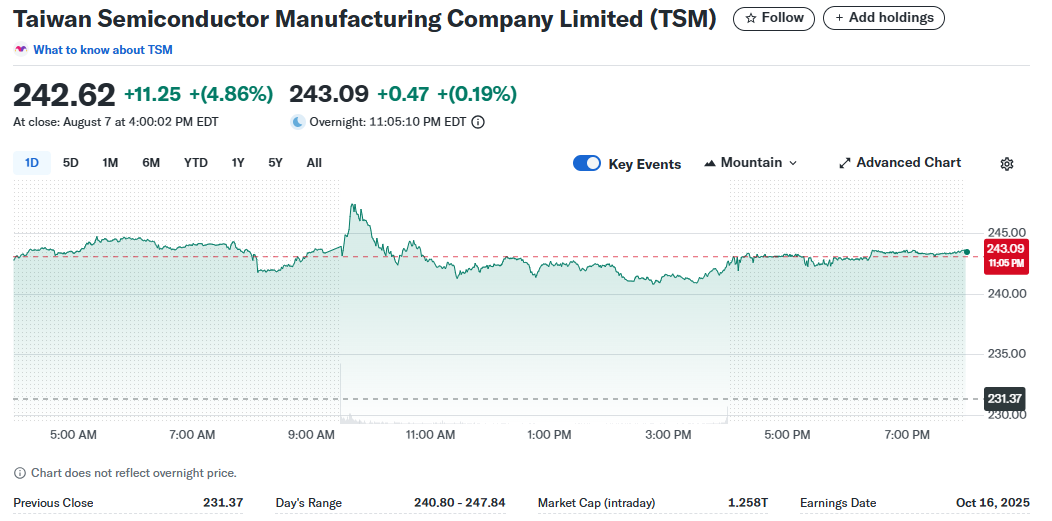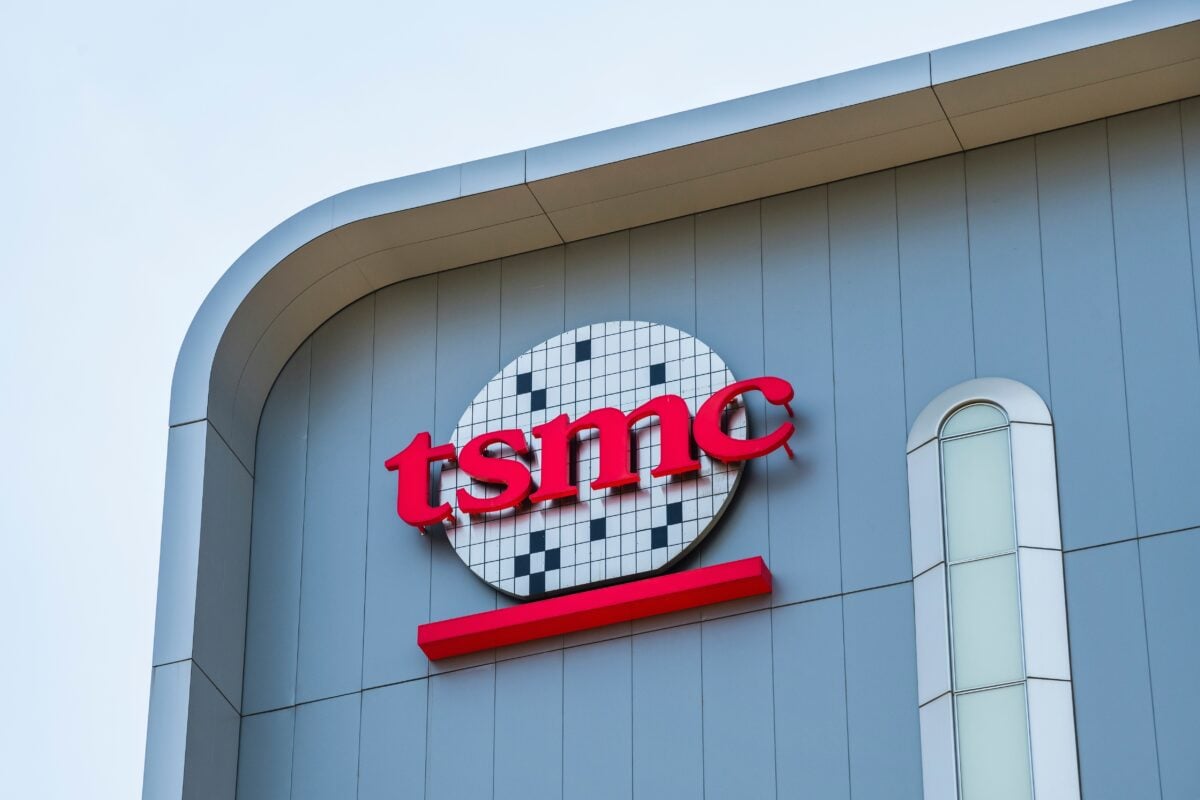TLDR:
Contents
- TSMC shares climbed 4.86% over the past five days, driven by Taiwan’s semiconductor tariff exemption news.
- Taiwan confirmed TSMC’s exemption from a proposed 100% US tariff on semiconductor imports, boosting investor confidence.
- TSMC’s $165B US investment, including Arizona plants, secured the exemption and lifted regional market sentiment.
- The decision reflects a broader trend of manufacturing expansions to counter trade policy risks.
Shares of Taiwan Semiconductor Manufacturing Company Limited (TSM) surged 4.86 % on Thursday, with investors encouraged by Taiwan’s confirmation that Taiwan Semiconductor Manufacturing Co. (TSMC) will be exempt from a proposed 100% US tariff on semiconductor imports.
The development, confirmed by Liu Chin-ching, head of Taiwan’s National Development Council, was widely interpreted as a positive signal for the region’s manufacturing sector.
While TCM Corporation is not directly tied to TSMC’s operations, the news boosted investor sentiment across Asia’s semiconductor-linked equities.

TSMC’s US Investments Drive Policy Wins
TSMC’s exemption comes as the chipmaker ramps up its US footprint, committing an additional US$100 billion to its Arizona operations. This investment, bringing its total US commitment to US$165 billion, includes three new fabrication plants, two advanced packaging facilities, and a research center.
Analysts say such large-scale commitments are becoming the new currency in trade negotiations, with US policymakers rewarding companies that bolster domestic manufacturing.
The move mirrors strategies by tech giants like Apple and Samsung, which have leveraged US investments to secure favorable tariff terms.
Ripple Effects for Taiwan and Beyond
The tariff exemption is part of a wider geopolitical and industrial shift. US semiconductor production has declined from 40% of global output in 1990 to just 12% in 2022, creating vulnerabilities that recent trade policies aim to address.
Taiwan’s position is especially strategic, producing about 90% of the world’s advanced semiconductors, making companies like TSMC pivotal in negotiations.
United Microelectronics Corp., Taiwan’s second-largest chipmaker, is also exploring tariff mitigation strategies through partnerships with US firms like Intel.
For TCM Corporation, which operates in related industrial sectors, this environment signals long-term growth potential, especially as supply chains diversify away from high-tariff zones.
New Capacity in Taiwan Adds to Optimism
Separately, last month TSMC announced plans to build four new plants in the Central Taiwan Science Park. These facilities, dubbed Fab 25, will focus on manufacturing 1.4-nanometer wafers, with the first production lines expected to be operational by late 2028.
This expansion complements its US investments, underscoring a dual strategy of maintaining leadership in advanced chip manufacturing at home while building political and economic capital abroad.
For TCMC investors, such moves reinforce confidence in the broader semiconductor ecosystem, fueling buying activity despite short-term market fluctuations. That said, with tariff uncertainties easing and global manufacturing strategies shifting, analysts believe regional stocks like TCMC.BK could benefit from continued capital inflows.


